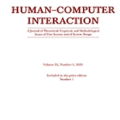Current natural language interaction for self-tracking tools largely depends on bespoke implementation optimized for a specific tracking theme and data format, which is neither generalizable nor scalable to a tremendous design space of self-tracking. However, training machine learning models in the context of self-tracking is challenging due to the wide variety of tracking topics and data formats. In this paper, we propose a novel NLP task for self-tracking that extracts close- and open-ended information from a retrospective activity log described as a plain text, and a domain-agnostic, GPT-3-based NLU framework that performs this task. The framework augments the prompt using synthetic samples to transform the task into 10-shot learning, to address a cold-start problem in bootstrapping a new tracking topic. Our preliminary evaluation suggests that our approach significantly outperforms the baseline QA models. Going further, we discuss future application domains toward which the NLP and HCI researchers can collaborate.
翻译:用于自我跟踪工具的当前自然语言互动主要取决于对特定跟踪主题和数据格式的优化实施,因为具体跟踪主题和数据格式既不能普遍适用,也不能扩展至巨大的自我跟踪空间的设计空间。然而,由于跟踪专题和数据格式的多样性,在自我跟踪背景下培训机器学习模式具有挑战性。在本文件中,我们提议了一个新的国家定位方案自跟踪任务,即从一个称为简单文本的追溯活动日志中提取近距离和开放式信息,以及一个执行这项任务的域名化、基于GPT-3的NLU框架。该框架增强了利用合成样本将任务转化为10集学习的及时性,从而解决新跟踪专题中的冷启动问题。我们的初步评估表明,我们的方法大大超越了基线QA模型。接着,我们讨论了国家定位方案研究人员和HCI研究人员可以合作的未来应用领域。





